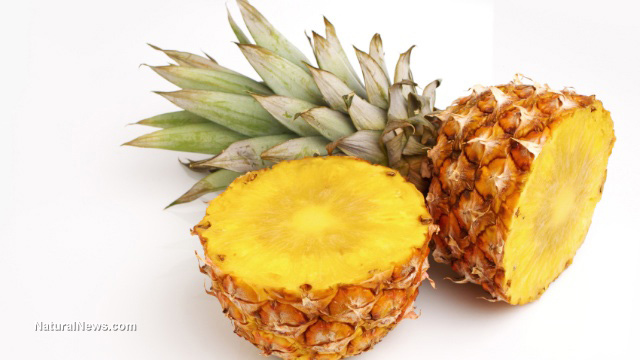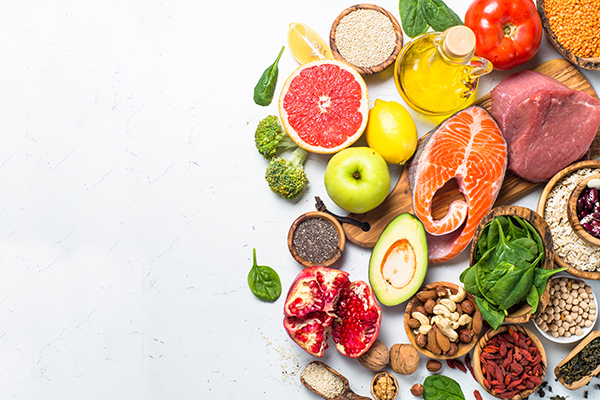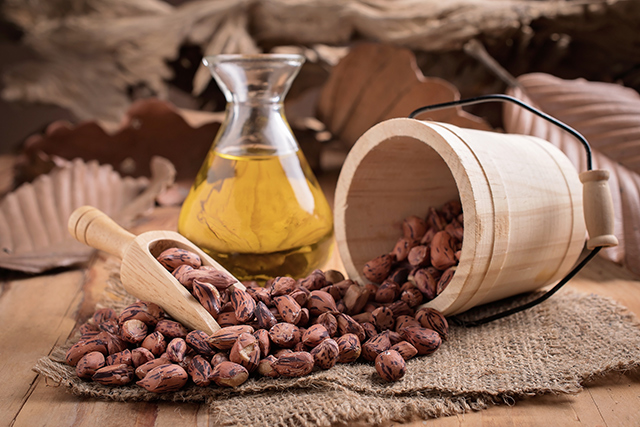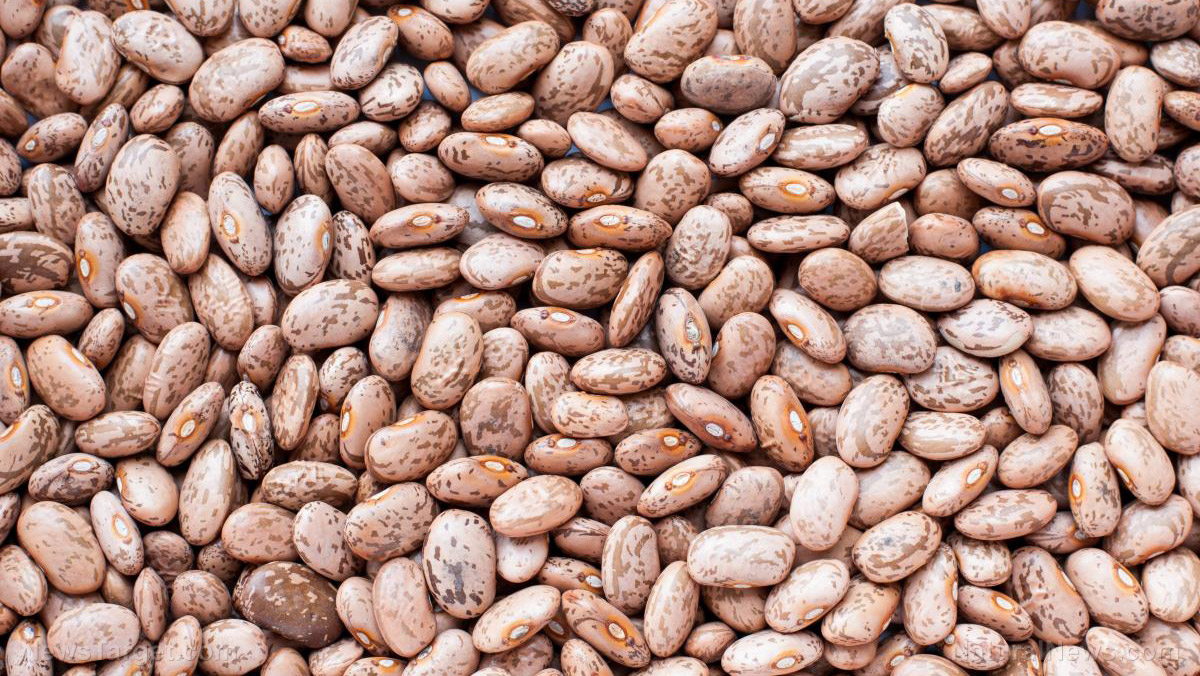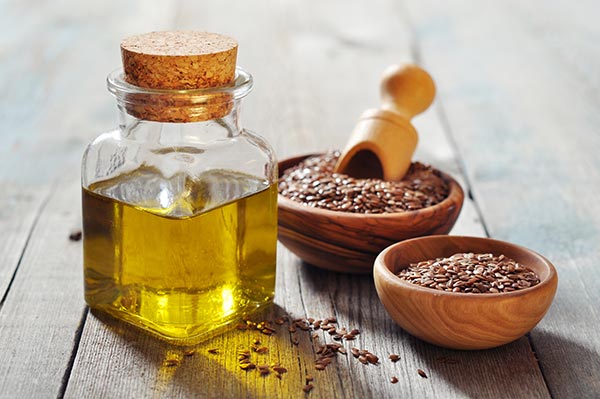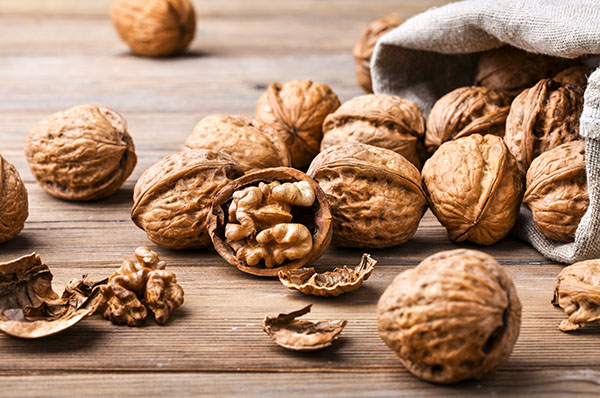Mango: A versatile superfood and culinary ingredient
05/22/2025 / By Laura Harris
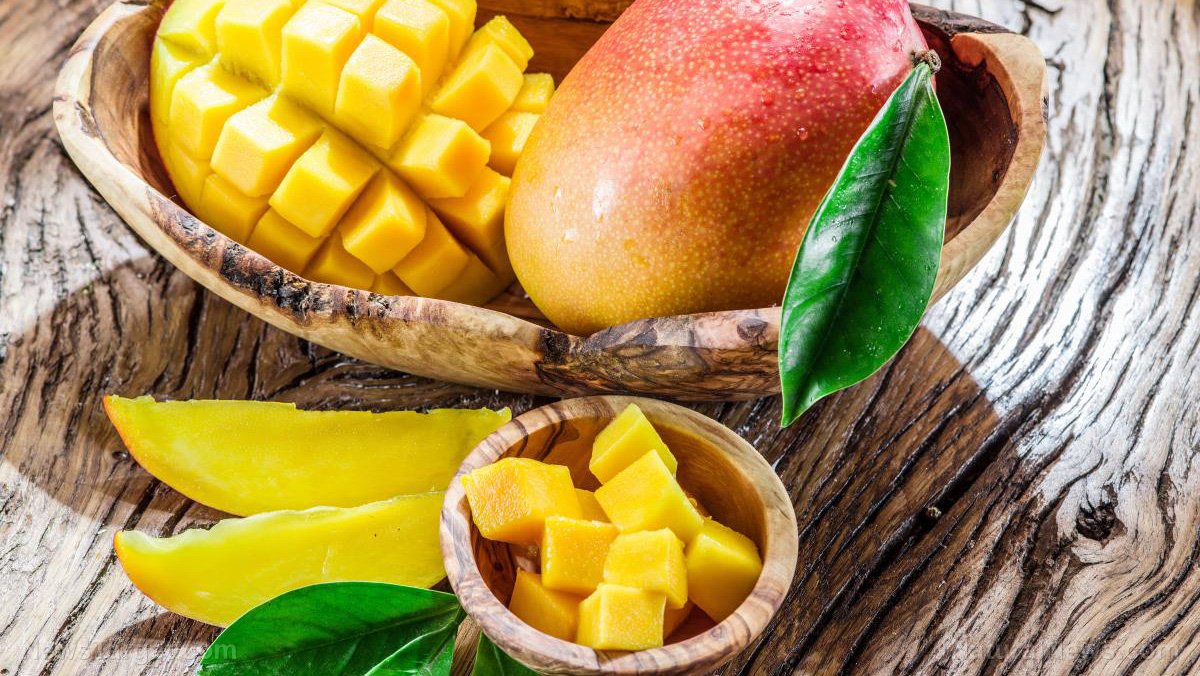
- Mangoes originated in South Asia over 5,000 years ago. It was revered in Indian culture as a symbol of love and prosperity. Mangoes spread globally via trade routes, with India remaining the top producer.
- Packed with vitamins A, C and B6, fiber and antioxidants (like mangiferin and quercetin), mangoes can support immunity, digestion and skin health. They may also help reduce cancer risk.
- Mangoes are highly beneficial for most people but should be eaten in moderation by people with diabetes. Latex allergy sufferers may also react to the skin.
- Mangoes’ thick skin protect their flesh from pesticide contamination. Organic mangoes are a safer choice as they are grown without harmful chemicals. Washing non-organic mangoes with baking soda or vinegar helps remove contaminants.
- Mangoes can be used in sweet and savory dishes.
The mango, often hailed as the “king of fruits,” is a tropical delight cherished for its sweet, juicy flavor and impressive nutritional profile. Beyond its delicious taste, the mango fruit offers a wealth of health benefits, making it a staple in both traditional and modern diets.
From its ancient origins to its role in contemporary wellness trends, the mango fruit has proven to be more than just a fruit – it is a natural medicine, a culinary marvel and a nutrient powerhouse.
Brief history of mangoes
Mangoes (Mangifera indica) have a rich history dating back over 5,000 years. They originated in South Asia, particularly in India and Myanmar. Revered in ancient Indian culture, mangoes were a symbol of prosperity and love, often mentioned in Hindu scriptures and even gifted to royalty.
Mangoes spread globally through trade routes, reaching East Africa by the 10th century and the Americas via Portuguese and Spanish explorers in the 16th century. Today, India remains the largest producer of mangoes, followed by China, Thailand and Mexico. Their adaptability to tropical and subtropical climates has made mangoes a global favorite.
Nutrient profile and health benefits
Mangoes are packed with essential vitamins, minerals and antioxidants, making them a superfood in every sense of the word. Here’s a breakdown of their key nutrients:
Vitamins and minerals
- 67 percent (per cup) of the daily value (DV) for vitamin C, which helps boost immunity and collagen production
- 25 percent of the DV for vitamin A, which supports healthy vision and skin and immune function
- Dietary fiber (3 g per cup), which supports healthy digestion and gut health
- Folate (B9), an essential nutrient for DNA synthesis and cell growth
- Potassium, which helps regulate blood pressure and muscle function
- Magnesium and copper, which support nerve function and energy production
Antioxidants and phytonutrients
- Mangiferin, a potent anti-inflammatory and antioxidant compound
- Quercetin and beta-carotene, which can protect against oxidative stress and chronic diseases
With only 99 calories per cup, mangoes are a nutrient-dense superfruit that fits well into a balanced diet and can support reasonable weight management plans.
Considerations
Mangoes are beneficial for health, but there are a few factors to consider.
On the positive side, they are packed with immune-boosting vitamins A and C, heart-healthy potassium and fiber and digestive enzymes like amylase that help break down carbohydrates. Their rich antioxidant content may also help reduce cancer risk by combating free radicals, while vitamin C can also support skin and hair health by promoting collagen synthesis. (Related: The health benefits of mango: A sweet and nutrient-packed superfruit.)
However, there are a few drawbacks for certain individuals. Mangoes contain natural sugars, so people with diabetes should consume them in moderation. Additionally, people with latex allergy may experience cross-reactivity from mango skin.
Why choose organic mangoes
While mangoes have a thick peel that helps reduce pesticide exposure, conventionally grown mangoes may still contain traces of harmful substances such as carbendazim (a fungicide), thiabendazole (a post-harvest treatment), and, in rare cases, heavy metals like arsenic and lead from contaminated soil. Opting for organic mangoes is a safer choice, especially if you consume the peel or use mangoes in smoothies. To further minimize pesticide residues, thoroughly wash mangoes with baking soda or vinegar before consumption.
Culinary uses of mangoes
The versatility of mangoes makes them an excellent ingredient in sweet and savory dishes. Here are some popular ways to enjoy mangoes:
Fresh and simple
- Sliced mango as a snack
- Mango salsa (with lime, cilantro and chili)
- Mango salad (with greens, avocado and nuts)
Smoothies and beverages
- Mango lassi (yogurt-based drink)
- Tropical smoothie (mango, banana, coconut milk)
- Mango lemonade
Desserts and baked goods
- Mango sorbet
- Mango sticky rice (Thai dessert)
- Mango cheesecake or tarts
Savory and global dishes
- Mango chutney (Indian condiment)
- Mango curry (with coconut milk)
- Mango ceviche (Latin American dish)
Mangoes are more than just a sweet treat – they are a nutritional goldmine with centuries of culinary and medicinal use. Whether eaten fresh, blended into smoothies or incorporated into savory dishes, mangoes offer a delicious way to enhance health naturally.
This story is not medical advice and is not intended to treat or cure any disease. Always consult with a qualified naturopathic physician for personalized advice about your specific health situation or concern.
Visit NaturalNews.com, a great article source where you can learn about superfoods and their health benefits.
You can also try Brighteon.ai, an AI model created by Mike Adams, also known as the Health Ranger. This model is available as a free download to be run locally and is designed to help share and decentralize knowledge. By doing so, it aims to bypass censorship and empower people with knowledge.
If you’re looking for an uncensored video free speech website where you can openly discuss nutrition, natural medicine, ingredients and more, check out Brighteon.com and our two free speech social media sites, Brighteon.IO and Brighteon.social.
Watch this clip about how Organic Mangoes can support your overall well-being.
This video is from the Health Ranger Store channel on Brighteon.com.
More related stories:
Eating a mango every day prevents constipation.
Superfood: Mango helps prevent obesity and type 2 diabetes.
Natural mouthwashes made with mango kernel address halitosis symptoms effectively.
Sources include:
Submit a correction >>
Tagged Under:
antioxidants, food is medicine, food science, fruits, functional food, health science, ingredients, mangoes, natural health, nutrients, nutrition, organics, phytonutrients
This article may contain statements that reflect the opinion of the author
RECENT NEWS & ARTICLES
COPYRIGHT © 2017 TOP 10 GROCERY SECRETS






